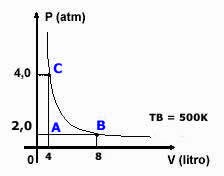There are many important chemical reactions involving organic substances, such as the combustion of hydrocarbons present in cooking gas (propane and butane), in petroleum derivatives, such as gasoline and diesel oil; in biofuels, coal and wood.
Other examples that can be cited of important organic reactions are the hydrogenation that transforms oils into fats, as is the process of producing margarine; the oxidation of ethanol in wine, turning it into vinegar (acetic acid); the fermentation of glucose, a reaction used to produce ethanol from sugarcane, among many others.
Do not stop now... There's more after the advertising ;)
The knowledge of how these reactions are processed is very important, especially for the organic synthesis, in which the structures of molecules are altered to produce products that we use for different purposes. Therefore, organic reactions are of great importance for industrial and laboratory processes, for technical-scientific development and for the well-being of society in general.
See in this section how these reactions are processed, their mechanisms, the main types, observe examples and see how they are applied in everyday life.
By Jennifer Fogaça
Graduated in Chemistry


